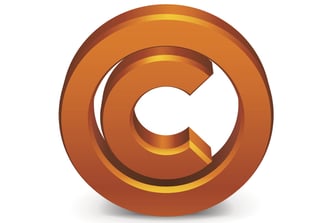LEGAL & ETHICAL
Photography & the law
In relation to photographs all photographs are covered by copyright under British law, the copyright lasts for 70 years from the date the owner dies, unless the photographer is taking the picture as part of his employment – in that case the initial copyright is owned by the employer. If you scan, copy or reproduce a photograph without permission that is copyright infringement, however being influenced by an image and then trying to recreate it is not.
Legally in the UK you can take photographs from any public place, but if you are on private land, you can only take photographs with the owners' permission.
Certain tourist attractions or events may restrict the taking of photographs, there are also individual laws relating to the taking of photographs of children (in relation to pornography), police and service personnel (in relation to anti-terrorism). Photography is also restricted in certain places – you cannot take pictures in a UK court, and also certain military sites.
In relation to the processing and editing of photographs the software used is covered by copyright protection too and you may be limited to the number of instalations you can use, copying is forbidden and you will have to agree to an EULA (end user licence agreement).




Ethics in photography
As well as considering the law and photography there are also several ethical points to take into consideration, just because legally we have a right to do something doesn’t necessarily mean it's socially or morally the right thing to do.
We should always be mindful of how our photography can impact on others, both in a positive and negative way. That’s not to say it should always be happy and positive images. Pushing boundaries and making people feel uncomfortable can be a useful tool in starting a conversation or highlighting a situation or specific problem, but it’s a fine balance that can be sometimes hard to reach.
Self Image
This has never been more important than in the current age, with the creation of the internet and developments in photographic technology - pretty much everyone has a camera in their pocket, and the ability to share what they see, we are all a lot more aware of our self-image and how we appear to others. This can lead to people searching for the “perfect appearance” in skin tone, facial features, and body shape etc which is fine if what you are judging against is natural but the ability to take pictures anywhere is matched by the ability to “adjust” them, so you can remove that skin blemish, reduce that waistline, and enhance that skin tone. The current generation of young adults are not able to compare themselves fairly with what they see and can be often disappointed when what they see in real life isn’t what they are presented with in pictures and what they are aspiring to.
Although we all want to present ourselves as well as possible its hard to decide how far is acceptable. How far can and should we go? When does an adjustment become an enhancement and then image manipulation?
Privacy
PrivacyWe all have a right to privacy in our lives, and although it is perfectly legal to take pictures in a public place should we do it if the subject doesn’t want their picture taken? Does it matter if it’s a member of the general public or a celebrity? Should an “ordinary” person be able to say no? Is a famous person “fair game” when doing their shopping? These are all moral considerations and whilst you may not be the actual photographer are you partly responsible by reading the news or magazines that will pay for these pictures?
Anonymity
When in a public place you are allowed to photograph people without their express permission, however they do have a right to anonymity, and what you actual capture in a still may not necessarily show the whole story, and could possibly be considered harassment, it can be a very complex issue so exercising caution maybe the best option.
Privacy, morality and exploitation
Whilst you do have a right to photograph in public places, serious consideration should be given to the suffering of others. Is it right to photograph a starving child? Are you duty bound to show the world their plight? If you take the pictures and sell them to a newspaper, are you exploiting the child or helping them? This must be a serious consideration, especially if you are a reportage enthusiast or journalist. If you ask someone, and they agree to it what happens if the picture becomes famous and you make a lot of money from it? Should you go back to your subject and share?
Ethics and morality is a major consideration especially in today’s world, and even if something is legal it doesn’t mean it’s right.
